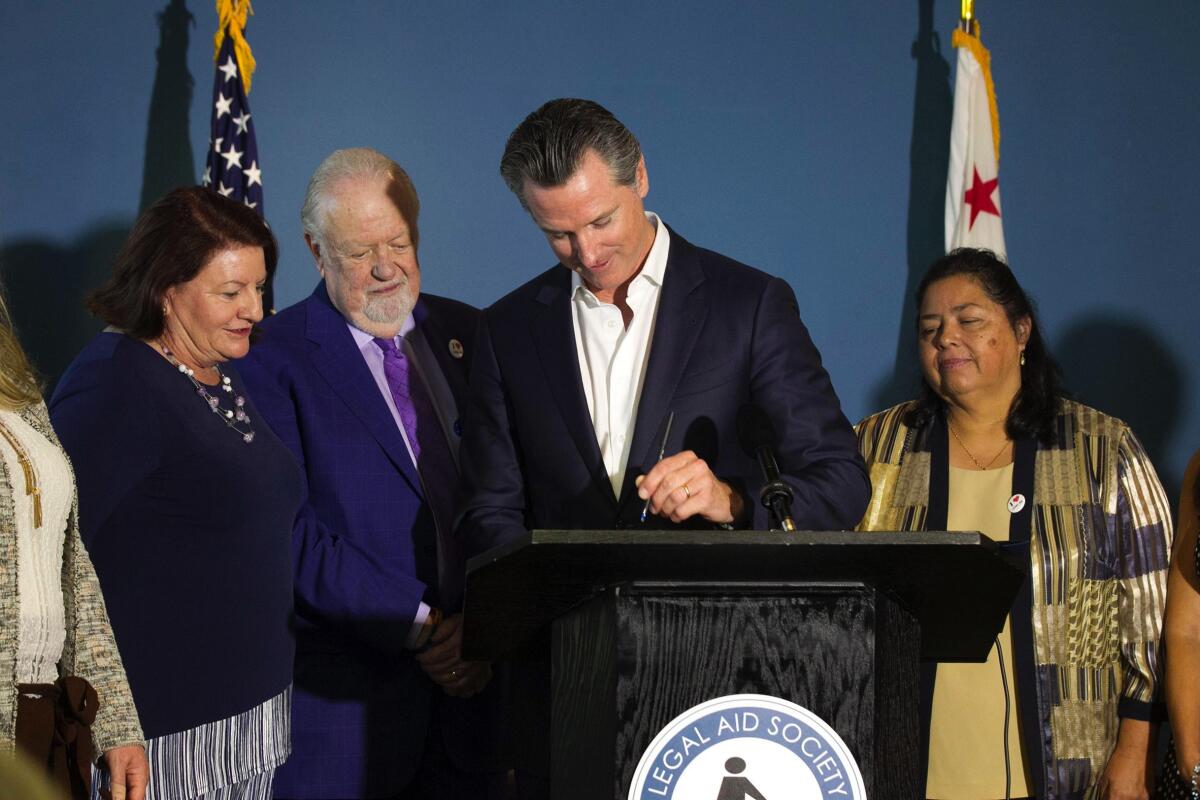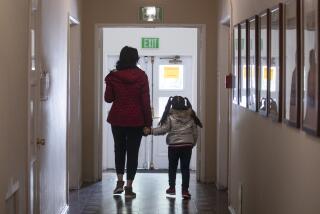Guest writer: How the COVID-19 pandemic has created dire legal problems for the poor

- Share via
People who are poor and struggling economically often have dire civil justice problems: the threat of eviction and homelessness; the prospect of having their families broken up in a child custody hearing; and the struggle to get food stamps and avoid going hungry. It’s almost impossible for these individuals and families to defend their rights without having a legal advocate, which the vast majority simply cannot afford.
The COVID-19 pandemic has made these grim predicaments much worse. With so many more people out of work, many more are confronting cascades of legal problems. Executive directors of legal services organizations around the country have described the deluge of desperate pleas for help — from victims of domestic violence, which is spiking severely; from tenants fighting landlords despite emergency rules that prohibit evictions; and countless people trying desperately to get healthcare that they are entitled to.
Yet the House’s $3-trillion pandemic relief package contains only $50 million of emergency aid for the Legal Services Corp., the nonprofit organization created and funded by Congress to deliver federal money to agencies that provide free legal representation for low-income Americans.
Congress gave the corporation $50 million as part of the initial pandemic funding, which was not enough. Even if the Senate supports the House’s new proposal, the additional funding will not make up for the loss of non-federal funding from states and philanthropies that legal services groups are facing because of the pandemic. Among all the bailouts Congress is offering, it should add $1 billion of annual funding for the LSC.
The investment in free legal services has a measurable, high return. According to the Legal Services Corp., many studies in the past decade have shown that funding for legal aid for low-income people is cost-effective. The California Bar Assn. estimated that every dollar spent in the state in 2017 on legal services resulted in a $5 return, either in money recovered for low-income clients or in savings to other public social service spending.
Ninety-five nonprofit legal service providers in California received $37 million in grants. The providers helped keep 4,895 families in their homes, avoiding $19.6 million in emergency-housing costs for clients, and helped obtain 4,874 restraining orders to protect survivors of domestic violence. With 231 orders obtained after hearings, they helped save between $2.9 million and $3.9 million in state Medi-Cal costs, otherwise needed to treat people for sexual assault and rape resulting from intimate partner violence. Legal services also recovered more than $16.1 million in unpaid wages.
The Legal Services Corp., with a bipartisan board of directors, has been demonstrably under-funded for years. Its current annual budget of $440 million should be increased to $1.4 billion for its per capital funding in the U.S. to equal what it was 40 years ago, accounting for inflation and population growth.
Not being able to afford a civil lawyer is not a standard measure of inequality, but it should be. The effect on the lives of low-income families and their communities can be long-term and severe. The pandemic’s personal, economic and social wreckage has already magnified this inequality.
Tripling the budget of the Legal Services Corp. would be a long-overdue step toward giving the poor a shot at the promise of equal justice. An increase on this scale could significantly reduce federal and state costs for social services and other needs as well as policing and healthcare costs connected to domestic violence.
Just as important, increasing support for legal services would be a national investment in fairness at a time when the pandemic is underscoring how badly unfairness has weakened the country.
Lincoln Caplan is a senior research scholar at Yale Law School and has published six books about legal affairs.
More to Read
A cure for the common opinion
Get thought-provoking perspectives with our weekly newsletter.
You may occasionally receive promotional content from the Los Angeles Times.










